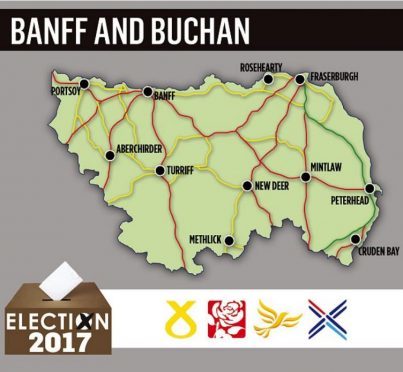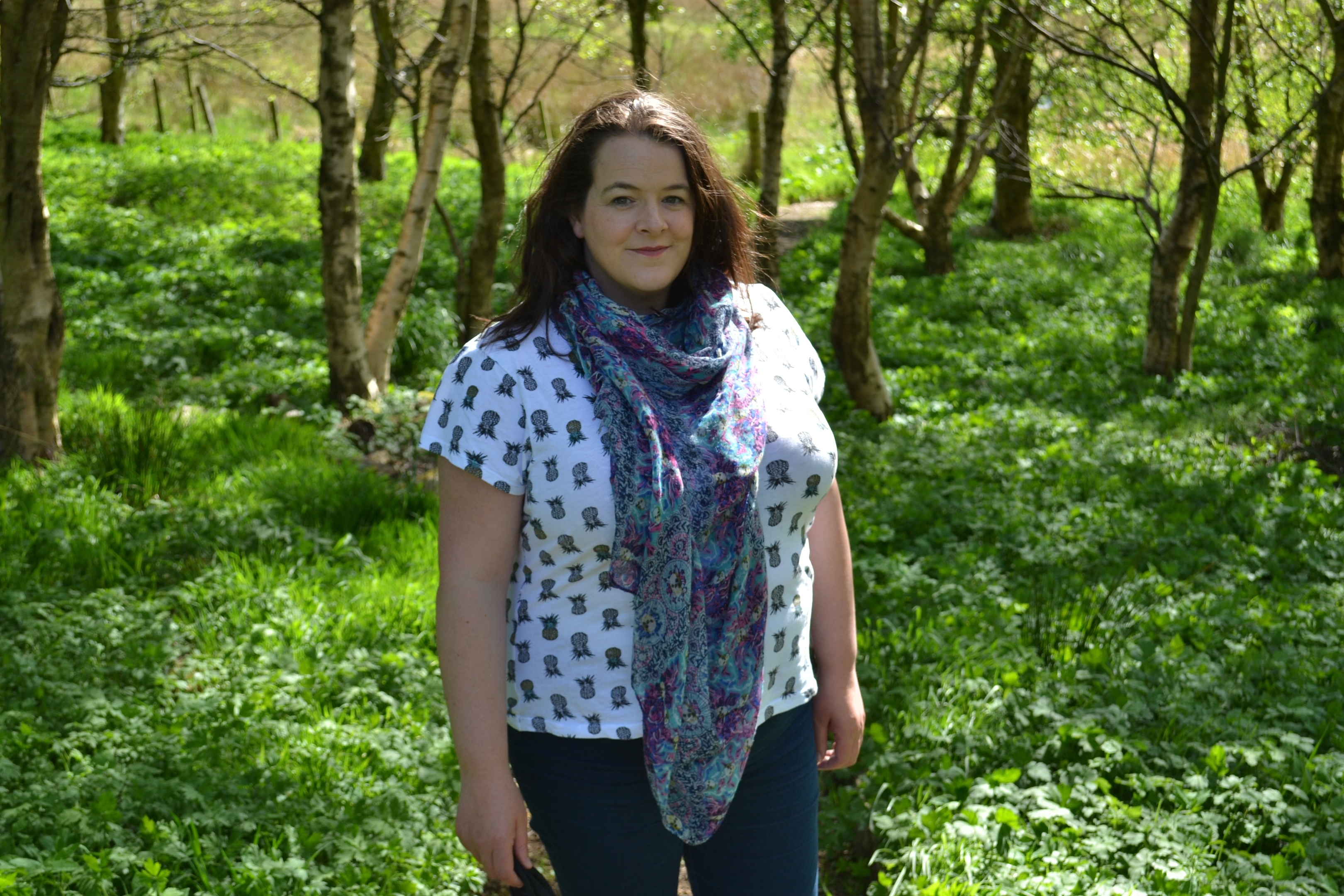While Scotland overwhelmingly backed Remain in the EU referendum, it was a different story in Banff and Buchan.
All 32 council areas north of the border rejected Brexit, but leading election analyst Chris Hanretty later calculated that a majority of people in the north-east Westminster Parliament constituency had in fact voted for it.
According to the East Anglia University politics lecturer’s research, 54% supported Leave, so it is hardly surprising the issue is coming up on the doorstep.
Nor is it unreasonable to assume that in places like the fishing ports of Peterhead and Fraserburgh, support for Brexit will likely translate into votes for the Tory candidate David Duguid.
Aberdeenshire also voted strongly in favour of remaining part of the UK in 2014, which could work in his favour too.
Moreover, senior party figures regard the success in the recent local elections as a positive indication that the momentum is with them.
But to win – with no Labour or Liberal Democrat vote to squeeze – the oil and gas management consultant must convince SNP supporters to switch allegiance.
Mr Duguid, 46, believes people are already beginning to turn as the pro-independence voice gets “quieter and quieter all the time” amid referendum fatigue.
In reality, he has a huge challenge on his hands.
The constituency, fifth on the Tories’ Scottish target list, has been represented by the SNP since 1987 – first by Alex Salmond and more recently Eilidh Whiteford.
She won just over 60% of the vote in 2015, giving her a majority of more than 14,300.
To overturn such an advantage would be a monumental feat.
In addition, she seems personally popular and has steadily increased her profile at Westminster, becoming the first-ever SNP MP to get a private member’s bill onto the statute book earlier this year.
Both candidates describe being asked about Brexit in their quest for votes, but the pair, who have known each other since their school days at Banff Academy, come to the issue from very different places.
Mr Duguid believes the Conservatives are the only party delivering the will of the people.
“I want to be a strong voice of influence for Banff and Buchan at Westminster in government as we go through these negotiations,” he says.
He also insists that re-entry into the EU would mean being part of the Common Fisheries Policy (CFP), rejecting the idea it could be reformed from within as well as SNP warnings a sell-out is on the cards.
On the other hand, Ms Whiteford, who insists she and her party have “always been consistent” in their opposition to the CFP, points to the impact of a hard Brexit on the processing and other sectors, which employ thousands of people.
“I think we forget it’s not just primary producers who are affected by this,” says the SNP candidate, 48, who likens the UK Government’s tactics thus far to “Basil Fawlty talking more loudly at the foreigners”.
She added: “I think some of the very shrill language we have heard from certain parts of the fishing community isn’t reflective of everybody.
“So many of the fishermen tell me they want a Norwegian style deal, but that’s exactly what Theresa May has taken off the table by saying she wants to leave the single market.”
Mr Duguid says, however, that those he has spoken to are confident the quality of product coming out of Scottish waters will mean they will always have a market, not just in Europe but around the world.
Of course, Banff and Buchan – a mostly rural constituency – is also home to many farmers, who are watching the Brexit process with equal interest.
Emphasising their anger at the SNP Government’s handling of CAP payments, Mr Duguid argues they are seeking a simpler process, while Ms Whiteford says they are really worried about the loss of subsidies.
It’s harder to anticipate how their vote will be distributed but perhaps it may offset some of the full-steam-ahead Brexiteers in the fishing camp.
Meanwhile, the other candidates standing in the constituency are Liberal Democrat Galen Milne, 66, and Labour’s Caitlin Stott, 37.
Neither is likely to challenge for the seat as their parties have never been strong in the area, but both are confident nonetheless.
Mr Milne, who runs a company that supplies laboratory equipment, says: “If my message is seen and if my message is listened to, then I feel that we can appeal to people like me who feel we should remain in the UK, and also that the UK should remain part of Europe.”
Ms Stott points to the inaccuracy of polls in the past and accuses the Tories and SNP of using the area as a “political football”.
She adds: “If you want to get rid of the Tories, you have to vote Labour; if you vote SNP you get the Tories. The SNP are not going to be the party of government at Westminster.”
In spite of their optimism, the contest is shaping up to be a two-horse race.
And while other factors including the oil downturn, pensions, digital connectivity – as well as devolved matters like infrastructure – will influence voters too, attitudes to Brexit will be key.
Anti-EU sentiment among the fishing communities may not be enough to take the Conservatives over the line, however.
In full: The candidates
- David Duguid, 46, Conservative, oil and gas management consultant
- Galen Milne, 66, Liberal Democrat, managing director of laboratory equipment supplier Thistle Scientific.
- Caitlin Stott, 37, Labour, researcher for the party.
- Eilidh Whiteford, 48, SNP, politician
2015: Banff and Buchan flashback results
- Eilidh Whiteford, SNP: 27,487
- Alex Johnstone, Conservative: 13,148
- Sumon Hoque, Labour (suspended by party in April 2015): 2,647
- David Evans, Liberal Democrat: 2,347

